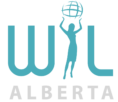Coaches come in many forms depending on where you need extra support. The main ones many will recognize are career coaches, leadership coaches, and executive coaches, but what is the difference and when should you engage with one? Well, that depends on d how available, vulnerable, and open you are to being coached. So I repeat the last piece – how open are you to being coached in being vulnerable with yourself right now? Originally, I struggled due to my lack of understanding of how I would benefit from a coach, until recently when I was offered new coaching opportunities. Coaching is now vital to my personal support system, where previously I was nowhere near ready (keep reading to find out why).
First, establish the parameters of what you are looking for:
- Identify areas where you need extra support – make a list.
- Determine what type of coach you might be looking for.
- Consider if the coach is internal to your organization or external. If they are certified, it is all confidential.
- Determine your level of commitment to the process.
- How long are you looking for support – 1 session, three months, etc. This will help you when interviewing various coaches (formally or informally).
How do you know what coach is right for you? Well, let’s explore the different types of coaches.
- Career Coach – focuses on helping you determine what areas of your career you might be stuck on, where you want to explore new opportunities, and whether a specific plan of action is right for you. They help identify along with the timeline that you feel comfortable with.
- Leadership Coach – focuses on helping individuals grow their leadership competencies through probing questions, self-reflection, and insights based upon the coach’s active listening. The coach helps reveal blind spots by summarizing what they heard to better prepare the individual for future roles.
- Executive Coach – focuses on helping leaders (mid and senior) tap into their self-awareness and areas they know they need to work on, set goals, and help work through some work-life integration challenges with expanded accountability. They provide experience and tools to help the individual elevate into more senior leadership roles and more.
- Your People Leader – this is a great place to start exploring the coaching concept, as your people leader should be coaching you in specific interactions instead of guiding what to do from an outside perspective. This type of coaching is typically limited and your people leader can only go so far.
How to find a coach:
- Look inside your organization. Many HR teams are certified coaches and may offer coaching as part of their service offering.
- Ask your peers if they know of a great coach and look them up to see if they are a good fit.
- Look at schools, like Royal Roads, that offer Graduate Coaching Programs. Many of the students require coaching hours to finish their program and side hint – it might be free if you allow their instructor to observe a session.
- Ask some of your ERG (Employee Resource Groups) if they can recommend a coach that you could contact. There may be non-profit organizations that offer coaching.
- Look at organizations, like WIL, who offer a Women In Leadership Development Program where coaching sessions are part curriculum.
BONUS: Another round of the WIL Leadership Program is starting on January 24, 2023. Start the new year by growing your professional skillset, click here to learn more!
My experience with coaches:
- To my point earlier about being ready for a coach, my first experience highlights my first struggle. I was given an executive coach in 2017 when I first started my MBA – hindsight being 20/20, I was nowhere near ready or in a place to best utilize the fantastic resource my company paid for me to grow. I was buried deep in trying to survive work, MBA, and family life.
- One of my peers began a coaching program at Royal Roads, and to support him, I signed up to be one of their coaches.I thank him for agreeing to take me on as part of his program because I truly got to see what coaching can offer me and why I need it as part of my personal support system.
- In taking the Women In Leadership Development Program, I received two 2.5 hours of coaching with one of the instructors (Keri Schwebius and Heather Thomson) and for the first time, I completed each and every reflection question from their book – Mind the Gap (I highly recommend this book!).
My experience being a coach:
- My organization offers a program, “Coaching for Business Managers”, run by our HR team, and I eagerly signed up for one of the six-week cohorts where I learned the GROW model. I was given opportunities to test my new skills and tap into how to handle probing questions in a safe space.
When considering a coach, ensure you are ready for the experience first and foremost. It is an uncomfortable journey to start, but incredibly rewarding.
Thank you for reading the final article of the “Your Personal Support System” series! In case you missed one, check out the other articles here:

Pingback: Seeking Advice – When to accept and implement and when to say thank you and ignore – Women In Leadership – Alberta Chapter Blog